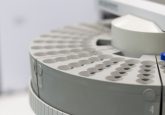Agilent Technologies to partner with Florida International University to develop designer drugs

Collaboration will conceive, develop and validate methods of forensic screening and analysis based on advanced chromatography and MS.
Agilent Technologies Inc. (CA, USA) has announced that it will partner with Florida International University (FL, USA) and its International Forensic Research Institute, with the aim of expanding the capabilities of the traditional drug-screening procedures involving immunoassays.
Methods based on chromatography and MS systems such as LC–QQQ-MS/MS, LC–QTOF-MS and GC–MS are being developed to identify recreational designer drugs, the constituents of which are commonly undetected by routine immunoassay drug-screening methods. Major classes of these drugs include phenethylamines, cathinones, tryptamines, piperazines and synthetic cannabinoids, most of which are novel analogs of existing illicit drug compounds that produce similar effects to illegal drugs.
According to Tom Gluodenis, Agilent’s Global Marketing Manager of Forensics and Toxicology, “It is our goal to provide private, academic and government institutions with sophisticated technology and screening methods that will quickly and accurately identify these substances so that laws enacted to restrict their use can be readily enforced.”
The research institute has recently validated a method for the detection and quantification of 32 designer drugs, including 24 phenethylamines, four piperazines and four tryptamines. Anthony DeCaprio, Associate Professor and Director of the Forensic & Analytical Toxicology facility at Florida International University’s International Forensic Research Institute stated, “Since routine immunoassay drug-screening methods are unable to detect most of the hundreds of individual designer drugs that have been identified, we are working with Agilent to develop advanced analytical methods to screen and confirm the presence of such drugs in both ante- and post-mortem specimens.” The research group is aiming to expand the tandem MS library to approximately 300 designer drugs.






